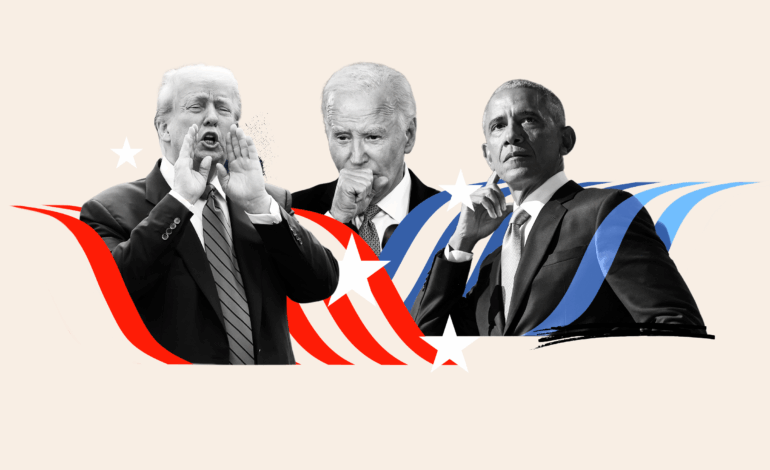Zohran Mamdani’s Victory Signals Shift in U.S. Politics

The recent Democratic primary victory of Zohran Mamdani over former Governor Andrew Cuomo in New York City marks a significant shift in American political dynamics. This unexpected win, occurring in June 2023, reflects a growing discontent with traditional moderation and a rising demand for bold, progressive policies. Mamdani, a 33-year-old democratic socialist, campaigned on issues such as housing justice and economic equity, delivering a clear message that resonated with voters fed up with the status quo.
During his victory speech, Mamdani declared, “This wasn’t just a primary. This was a referendum on a crumbling status quo.” His campaign focused on concrete proposals, including rent freezes, city-owned grocery stores, and steep taxes on the wealthy. The result was a decisive win, with Mamdani securing 56.4 percent of the ranked-choice votes compared to Cuomo’s 43.6 percent. This outcome emphasizes a broader trend across the nation, where voters, both urban and rural, are increasingly favoring candidates who promise to confront systemic issues head-on rather than merely negotiate.
Declining Moderation in American Politics
Historically, moderation in U.S. politics has been associated with stability and compromise. However, this perception is shifting. From 1980 to 2020, the wealth of the top 1 percent surged from controlling 25 percent to nearly 40 percent of national wealth, while wages for middle- and lower-income workers stagnated. Housing costs in urban areas skyrocketed by 300 percent, exacerbating economic disparities.
By 2024, a Gallup survey revealed that only 34 percent of Americans identified as moderate, a decline from over 40 percent in the early 1990s. Self-identified conservatives and liberals have reached unprecedented levels, indicating a polarization within the electorate. Political consultant Mike Madrid noted, “Moderation meant compromise—not excitement. People lost faith that those deals ever made a difference at their own dining table.”
The ongoing realities of inflation and affordability have further escalated dissatisfaction. Nearly 40 percent of Americans now cite grocery costs as their primary concern, according to a July AP-NORC poll. This backdrop facilitated Mamdani’s primary victory, illustrating a demand for candidates who directly address the pressing issues affecting everyday lives.
Republican Realignment and Democratic Dilemmas
The right-wing of American politics has also undergone a transformation, largely shaped by Donald Trump. His rise in 2016 marked a departure from traditional Republican ideals, appealing to those disenchanted with globalization. By mid-2025, a Gallup survey indicated that 77 percent of Republicans identified as conservative, with moderates dwindling to 18 percent. Despite Trump’s fluctuating popularity, approximately 85 percent of Republicans continue to endorse his leadership.
Republican strategist Matt Klink emphasized the party’s shift, stating, “Republicans have near unanimity in supporting Donald Trump.” This consolidation has effectively sidelined moderates and reshaped the party in Trump’s image, leaving a vacuum for traditional conservative voices.
On the Democratic side, Mamdani’s primary success reflects a similar grassroots shift. His progressive platform has garnered significant support, yet the Democratic establishment has been slow to embrace his candidacy. Notably, several prominent state Democrats, including Governor Kathy Hochul and Senate Minority Leader Chuck Schumer, have yet to endorse him, leading to criticism from party insiders. Former Obama speechwriter Jon Favreau called the lack of support “pathetic,” pointing out the disconnection between party leadership and voter sentiment.
As dissatisfaction with the current Democratic leadership grows, figures like Vermont Senator Bernie Sanders are advocating for a more radical approach. Sanders has even suggested that progressives might need to run as independents if the party fails to adapt. “If there’s any hope for the Democratic Party, it is that they’re going to have to reach out—open the doors and let working-class people in,” he stated during a recent tour aimed at mobilizing resistance to what he describes as a billionaire-led assault on American governance.
The implications of Mamdani’s victory extend beyond New York. Political analysts observe that voters across the country are increasingly demanding candidates who take clear stances on issues rather than adopting moderate positions. Madrid stated, “We’re seeing Democrats in New York who want to flip the tables over, much like Republicans did in their Tea Party moment.”
Current Democratic leaders face a crucial decision: adapt to the growing leftward shift or risk losing relevance. Candidates who project a fighting spirit, even if their policies lean moderate, are resonating with voters. For example, Senator Ruben Gallego from Arizona exemplifies this approach. He has embraced a combative stance on issues such as wages and affordability, appealing to voters in a state that Trump previously carried.
As Democrats grapple with their identity and strategy, the GOP remains unified under Trump’s leadership, where loyalty to the former president remains paramount. A CBS News/YouGov survey indicated that 65 percent of Republican voters consider loyalty to Trump important. This loyalty has stifled dissent within the party, leading to fewer voices challenging Trump’s influence.
In conclusion, Mamdani’s primary victory in New York City signifies a meaningful shift in U.S. political dynamics. As both major parties navigate their evolving landscapes, the push for bold leadership and clarity of purpose is becoming increasingly apparent. The coming months will be critical as candidates respond to the demands of an electorate that is no longer satisfied with moderation or compromise.






